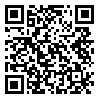BibTeX | RIS | EndNote | Medlars | ProCite | Reference Manager | RefWorks
Send citation to:
URL: http://jdisabilstud.org/article-1-3175-en.html
2- Assistant Professor, Department of Persian Language and Literature Education, Farhangian University, Tehran, Iran
Abstract
Background & Objectives: Phonological awareness appears in children in the preschool years and develops and evolves in children until the beginning of elementary school. It is one of the most essential pre–literacy skills and predictors of success in reading. Also, early stimulation of phonological awareness prevents learning disabilities by facilitating learning to read. This prevention is critical because learning disabilities have negative consequences not only in the academic but also in social–emotional dimensions and behavioral dimensions. Hence, several interventions and strategies were designed by researchers to help develop and improve the phonological awareness of preschool children. Although the positive effect of storytelling activities on children's comprehension and attention span, language skills, and literacy has been shown in previous studies, its impact on children's phonological awareness has not been studied until this research. Accordingly, the present research was conducted to determine the effectiveness of storytelling activities on the phonological awareness of preschool children.
Methods: The research method was experimental with a pretest–posttest and follow–up design with a control group. From the statistical population of children aged 4 to 6 years in preschool centers in the 12th district of Tehran City, Iran, 30 eligible volunteer children were randomly assigned to the experimental and control groups. Informed consent from parents and managers of preschool centers, interest of the child, age range between 4 and 6 years, and lack of any disease or mental and physical disorders were considered as the inclusion criteria. The exclusion criteria were the absence of more than three sessions of children in storytelling activities, the occurrence of any physical and mental problems, simultaneous participation of children in any other related educational programs, and the willingness of parents, managers, or children to withdraw from the research. Children in the intervention group participated in storytelling activities for 8 weeks, three one–hour sessions per week (24 sessions in total). There was no intervention for the control group. The data were collected using the Phonological Awareness Test (Soleymani & Dastjerdi Kazemi, 2005). The data were analyzed using repeated measures analysis of variance and Bonferroni post hoc test at a significance level of 0.05 and through SPSS22 statistical software.
Results: The results showed that the effect of time and the effect of group and the interaction of group and time on the dimensions of phonological awareness, including syllabic awareness, awareness of intrasyllabic units, and phonemic awareness were significant (p<0.05). Also, the results indicated a significant difference in the mean scores of the pretest in all dimensions of phonological awareness with the posttest and follow–up in the experimental group (p<0.001). However, the posttest scores were not significantly different from the follow–up stage in any of the three dimensions (p>0.05). This result means that the impact of the intervention of storytelling activities on children's phonological awareness is lasting.
Conclusion: Based on the research findings, storytelling activities increase preschool children's phonological awareness. Therefore, the purposeful integration of storytelling activities in the preschool curriculum, along with other benefits for children, can be beneficial in the development and strengthening of phonological awareness of preschool children.
| Rights and permissions | |
 |
This work is licensed under a Creative Commons Attribution-NonCommercial 4.0 International License. |




